The United Nations General Assembly proclaimed 1975 International Women’s Year.
In 1970’s Australia, social change was in full force around women’s rights. The purpose of International Women’s Year was to improve the status of all women by, amongst other things, “achieving equality between women and men; ensuring the integration of women in society by emphasising women’s responsibility and important role in the economic, social and cultural development of our own country and at the international level; and the removal of discrimination against women.”
Under the Whitlam government, Elizabeth Reid was appointed as the special advisor to the Prime Minister on “women’s issues” and a National Advisory Committee was established in September 1974 with Reid as the convenor. The committee was to publicise and coordinate the International Women’s Year program, which had three objectives: to change attitudes, reduce discrimination and encourage women’s creativity.
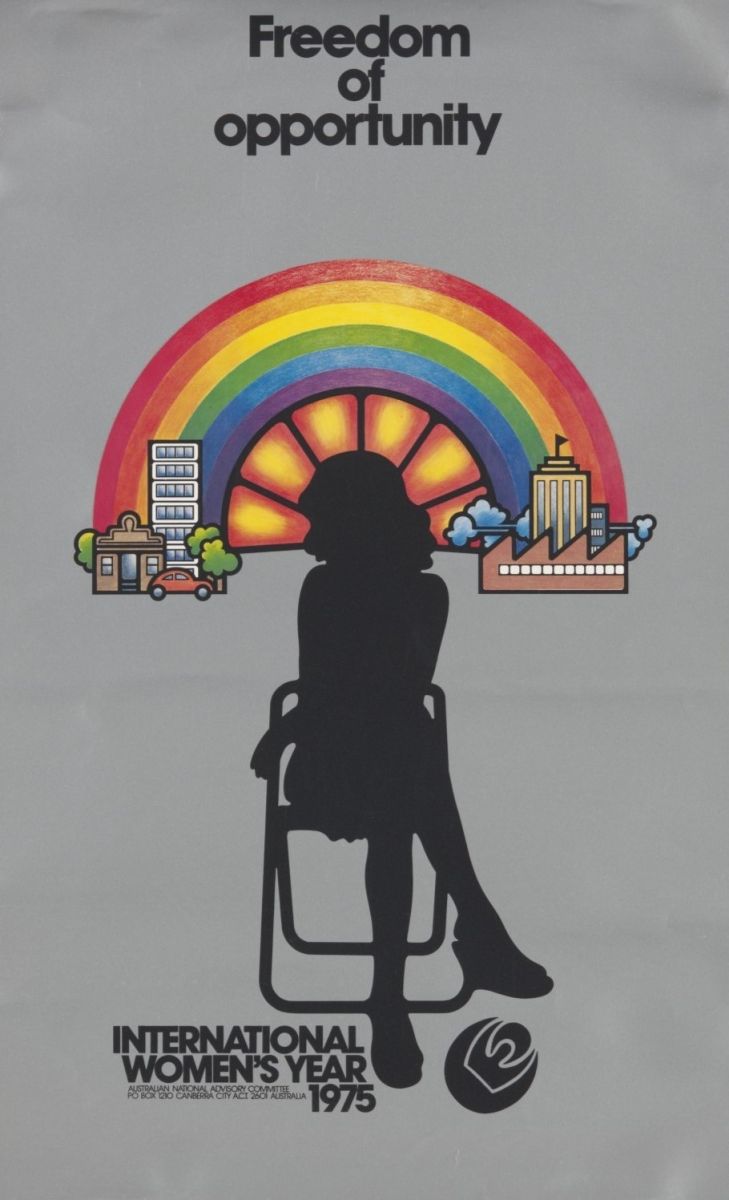
Copyright National Museum of Australia CC BY-NC-SA 4.0.
In 1974, the Committee for International Women’s Year sent letters to all New South Wales Local Government Authorities, including Parramatta City Council. The letters included suggestions for how councils might go about promoting and encouraging activities for International Women’s Year at a local level. Parramatta City Council had one female alderman (a role we now call councillor) who was elected in October 1974, Elizabeth Boesel.
By January 1975, Parramatta City Council resolved to form an International Women’s Year Committee to coordinate events and functions associated with International Women’s Year. Aldermen Boesel, Jeffrey, Welsh and Books were appointed to the committee.
This excerpt from the personal papers of Elizabeth Boesel provides further insight into the formation of the committee:
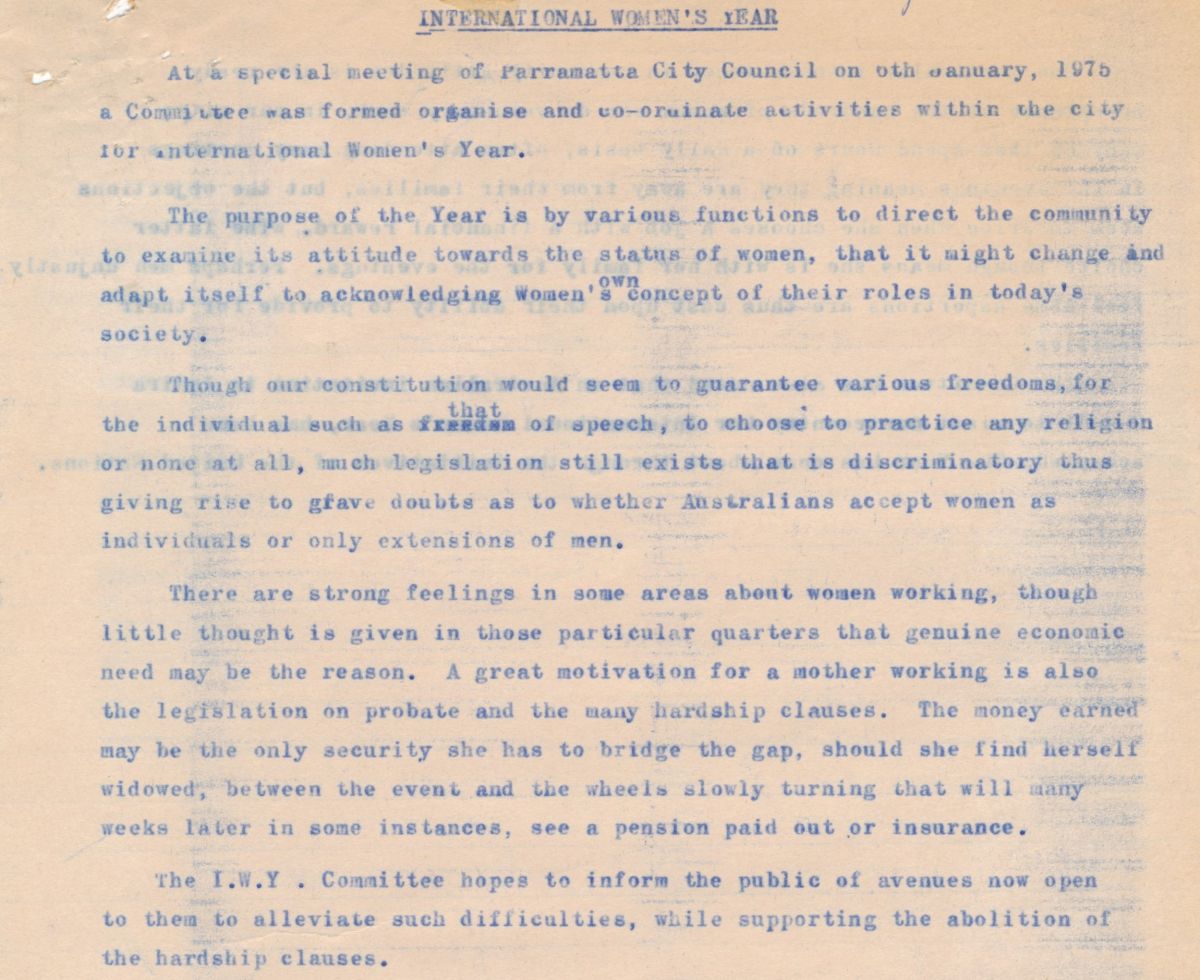
City of Parramatta Heritage Archives: ACC209.
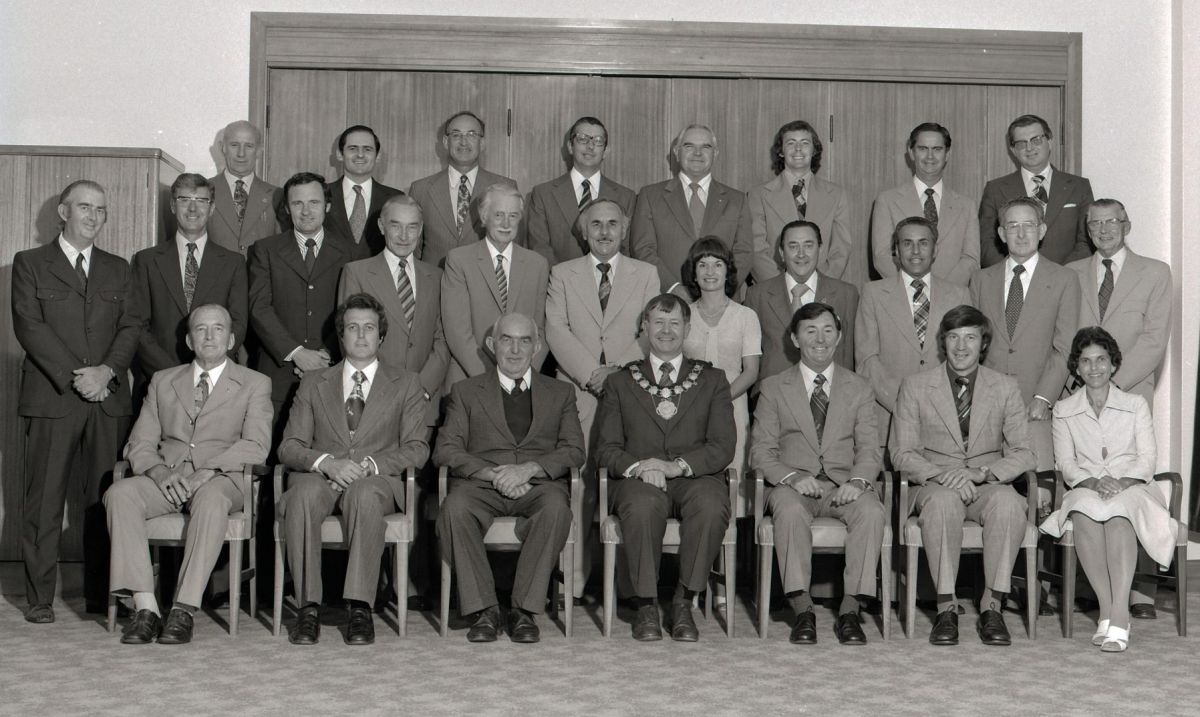
City of Parramatta Heritage Archives: ACC002/062/002.
In February 1975, Alderman Boesel was successful in obtaining a $3000 International Women’s Year Grant under the category of community attitudes to help fund local activities. The grant contributed to a range of events in the Parramatta LGA to celebrate International Women’s Year, fittingly starting with International Folk Dancing at St. John’s on the 8th of March 1975 (International Women’s Day.) Alderman Boesel was a former curator of the Macleay Museum at the University of Sydney, and together with Council's librarian developed an exhibition about Fifty Famous Australian Women to be displayed in the Old Post Office Building. A film night, and hire of Parramatta Town Hall for a Women's Speak Out, were also supported by the grant.
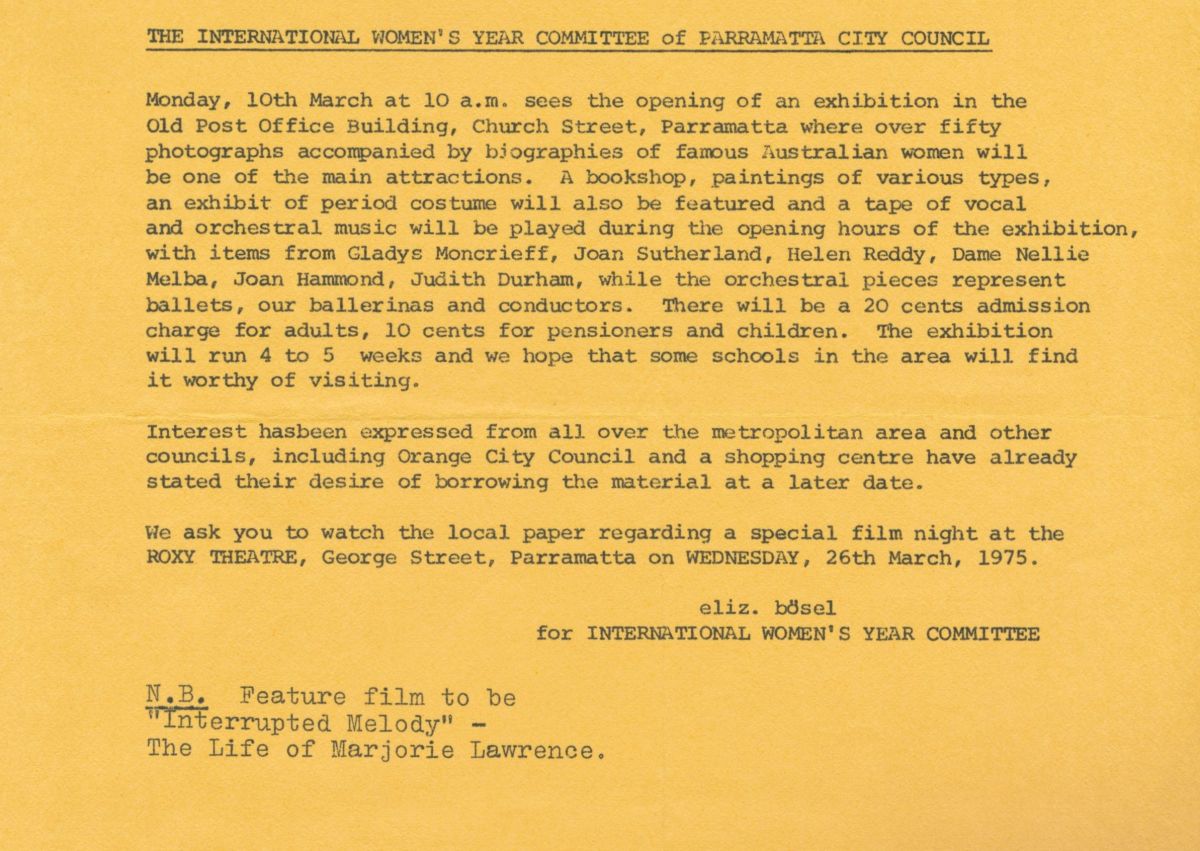
City of Parramatta Heritage Archives: ACC209.
The Women’s Speak Out was held at Parramatta Town Hall on the 30th of November 1975. It would be a contentious event to take place in Parramatta during International Women’s Year and was widely reported on by local newspapers.
The Speak Out appears to have been organised by Alderman Boesel and the Parramatta Women’s Health and Resources Collective. The aim of the event was to hear the experiences, frustrations, and joys of local women in all different stages of life in the spheres of education, the workforce and health.
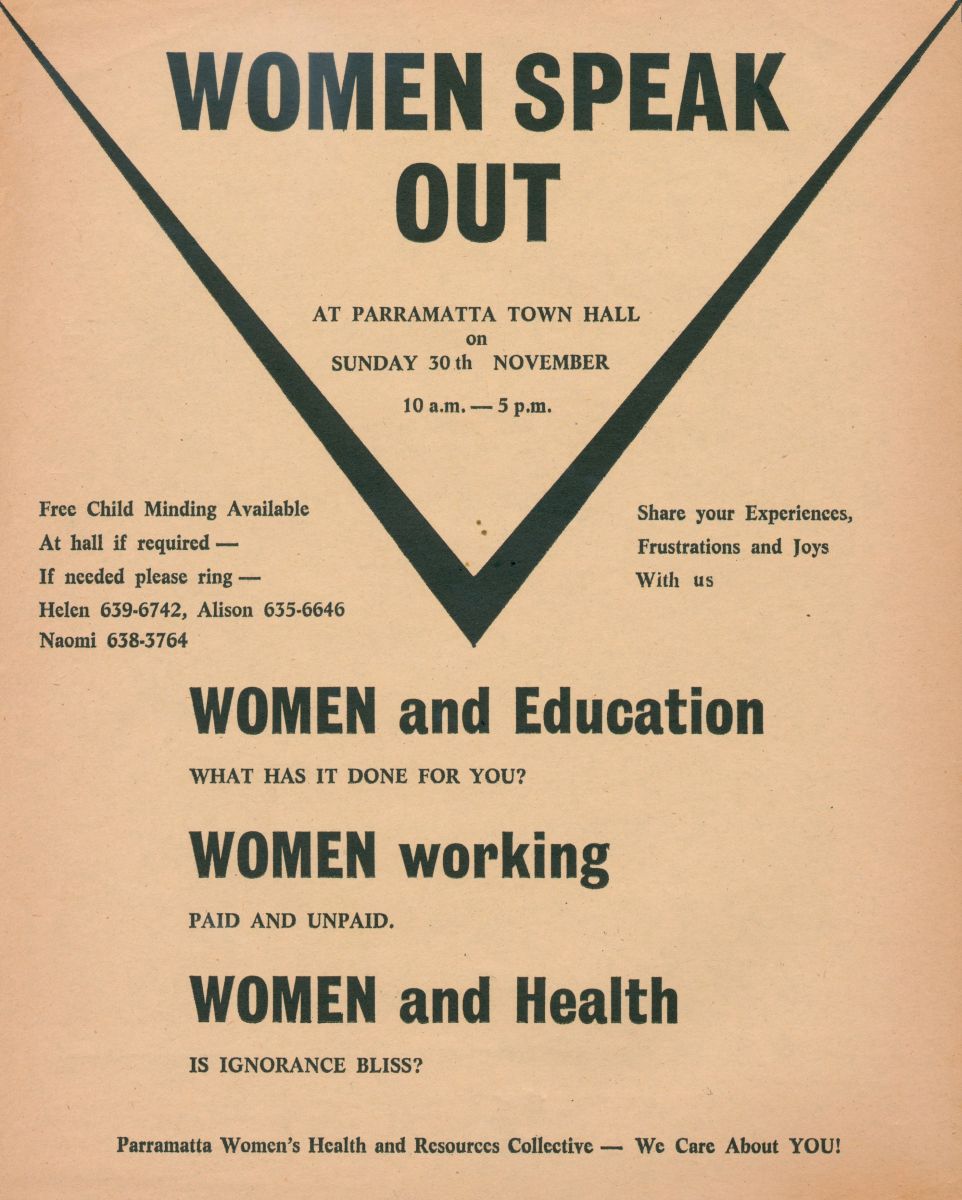
City of Parramatta Heritage Archives: ACC209.
Alderman Boesel gave an opening speech at the event and was one of three chairmen for the discussion. Attendees had varied opinions about the Speak Out as a platform to share their perspectives. While positive feedback was given, concerns were also raised over the event being held on a Sunday, an understanding that the sole purpose of the meeting was to discuss access to women’s healthcare services, and reception of a play performed during the lunch break by the Women’s Street Action Theatre. Our Council Minutes reflect that the Council even received petitions requesting that a review of the Speak Out be undertaken.
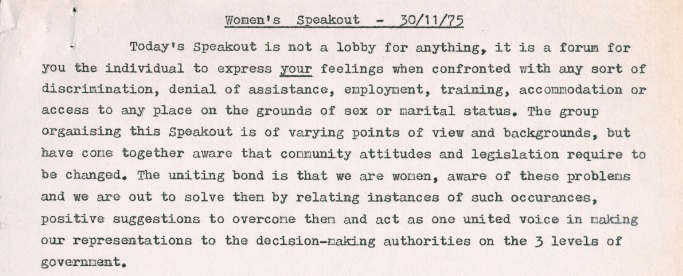
Personal Papers of Elizabeth Boesel.
City of Parramatta Heritage Archives: ACC209.
It would be January 1976 before the Council’s review was complete, determining that Council’s only role was in providing hire of the hall as a space for discussion to occur. In the same month, the New South Wales Women’s Advisory Board requested to hire the Parramatta Aldermen’s Room to meet and have discussions with members of women’s organisations and individuals within Parramatta, in relation to matters concerning the State Government.
These records from our Heritage Archives are just one example of the role Parramatta Town Hall played as a place for debate and change to occur within the local community. The records offer an interesting insight into the perspectives and opinions of women in Parramatta during the 1970s, during a time of widespread social change across the country.
![]()
Paige Davis, Heritage Archivist, 2023.
Select Bibliography
City of Parramatta Heritage Archives: ACC209.
City of Parramatta Heritage Archives: PRS21/032 & PRS21/033.
City of Parramatta Heritage Archives: PRS133; 131/23.
“International Women’s Year, 1975.” National Archives of Australia, https://www.naa.gov.au/help-your-research/fact-sheets/international-womens-year-1975 (Last Accessed: 8/12/2023.)
National Archives of Australia: A5931, CL1171.


